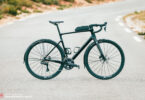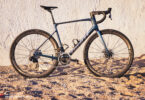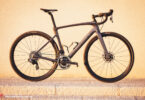An aero bike with wide 28mm tires, disc brakes and just one front chainring? Are we seeing aero bikes go down a new avenue? According to its creators, the 3T Strada heralds the start of something big so we were keen to take a closer look.
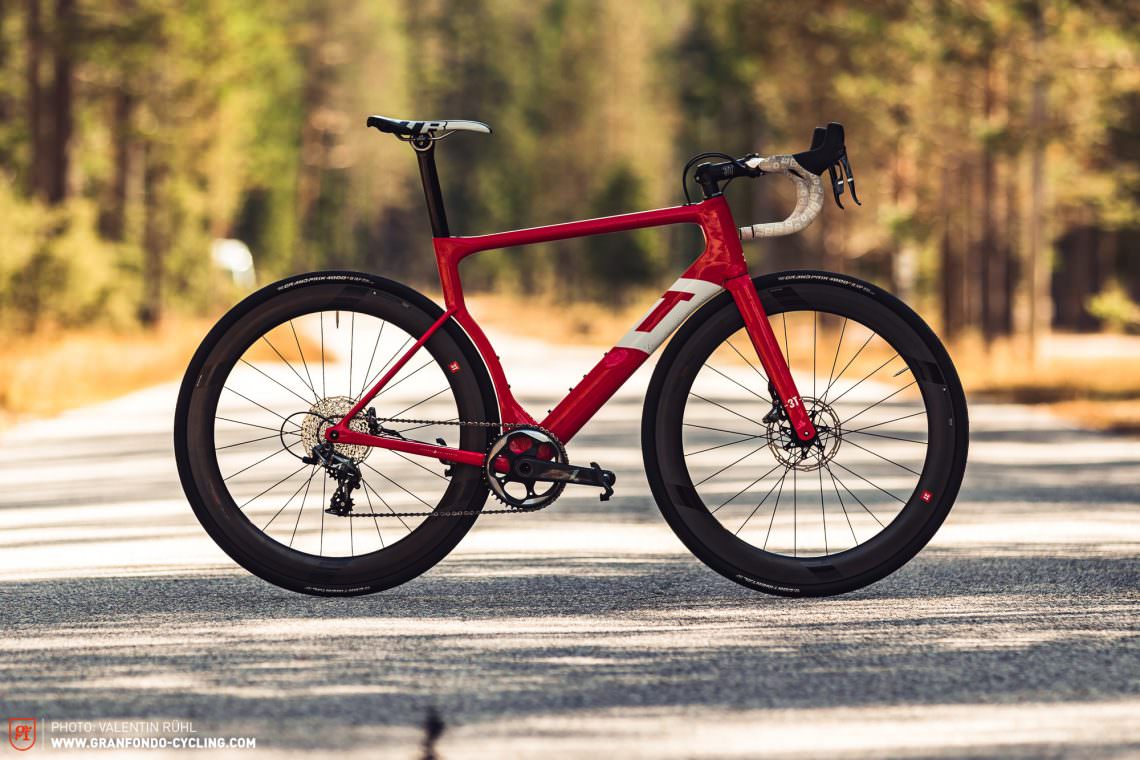
3T aren’t afraid to step out of the industry’s comfort zone. Their recently launched 3T Exploro – the world’s first aero adventure bike – is a fine demonstration of this nerve, which we recently put to the test on the take-no-prisoners Belgian cobbles in our big Endurance Bike Test. Right now the 3T Strada looks set to usher in a new generation of aero bikes by sealing the knot between comfort and aerodynamics. Since 1961 the Italy-based brand have wielded their skills to create high-end handlebars, doggedly pursuing new methodologies and novel materials. Back in 1984 they were also responsible for the first ever aero bars that Moser rode to a new hour record. So you see, it’s not as though 3T are unfamiliar with the term ‘aero’.
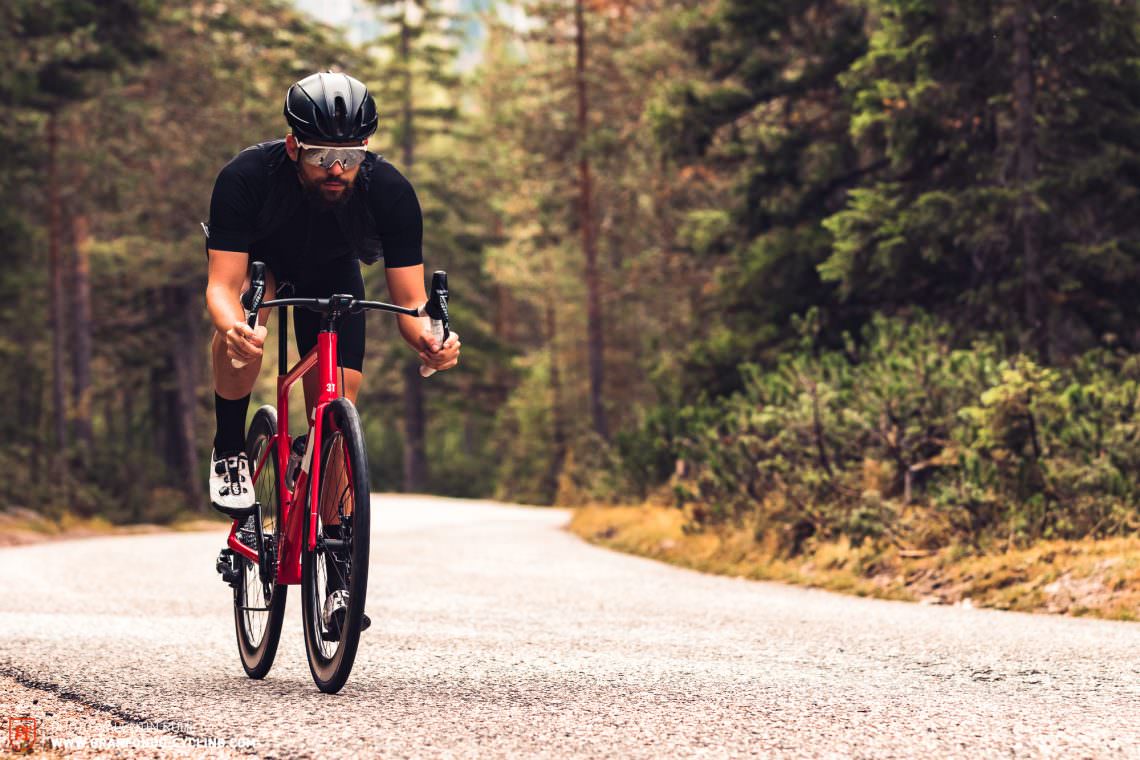
Comfort of the 3T Strada
Wide tires are in some sort of echo chamber right now and gaining more and more traction with roadies with the increased comfort and ability to soak up bumps and poor road surfaces. In the case of the Strada, 3T have gone exclusively for the more conservative 28 mm width in order to retain speed. The frame is designed with a profile that 3T have dubbed ‘Realfast Arcfoil’, which sees the seat tube hug the rear wheel in a manner akin to a time trial bike. The frame and fork are closely cupped around the wide 28mm Continental 4 Season tire, which at first glance looks worryingly close. In a further bid to elevate comfort, the design sports slim seatstays.
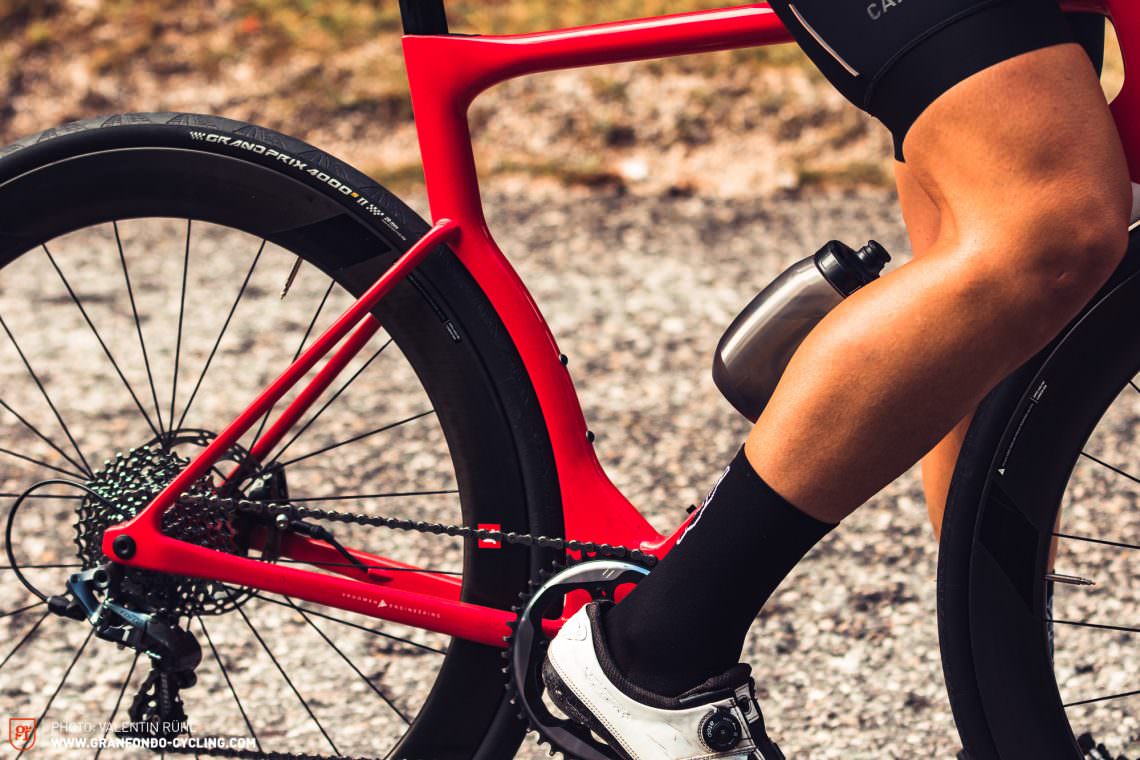
The 1x drivetrain on the 3T Strada
The choice of a 1×11 drivetrain on the Strada is another fine example of how 3T aren’t afraid to break with convention – and how their approach actually makes a lot of sense. The absence of the front mech and a second chainring up front means two fewer hindrances for the wind. According to 3T it generates a better airflow, particularly around the rear wheel. By introducing a wide range cassette, such as 3T’s new 9–32t model, no one’s expected to compromise on gear range. This particular model offers virtually the same range (356 % compared to 368%) as you’d get from the popular choice of semi-compact cranks with a 52–36 and an 11–28.
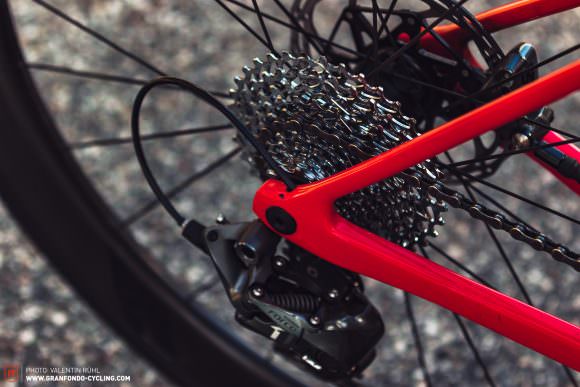
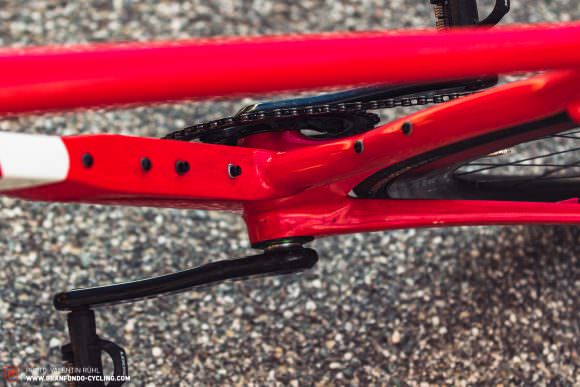
3T Strada a closer look at the frame and fork
Both the frame and fork show a streamlined approach to aero-optimisation. 3T have integrated a bottle cage into the frame, in a design they’ve dubbed Hide Ration. The downtube widens at the height of the bottles and it has really been optimised to be ridden with one bottle in place – practical. In the single bottle ‘Teamleader’ set-up your bottle will be placed even deeper just above your bottom bracket and held in place with additional mounts.
Price: 3.800 €
Fork: 3T Fundi Team, 12 mm thru-axle, 400 g (full length)
BB: BB386EVO
Headset: 1 ¼ –1 ⅛
Seatpost: 3T Charlie Squaero Strada
Brakes: Flatmount
Cable Routing: internal with a FlipTop Cover for 1×11 mechanical, Di2, eTap
Frame Weight: 970 g (size M)
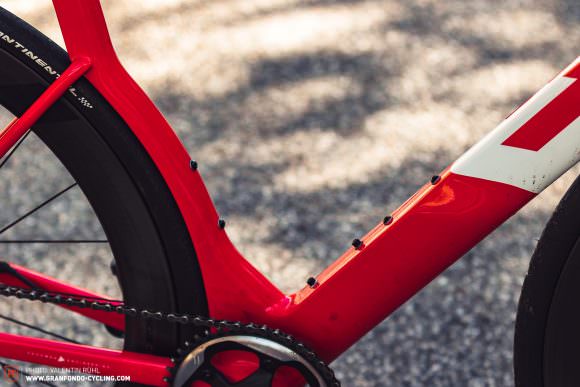
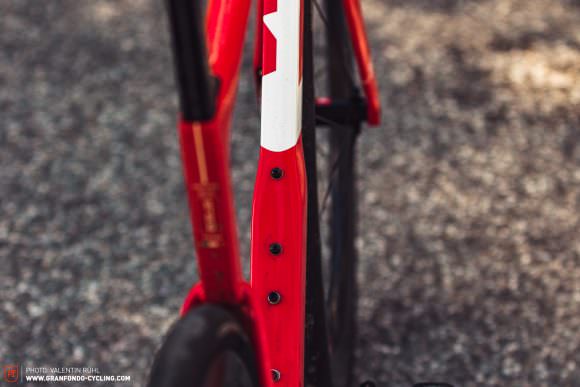
Fully designed in house, the 3T Fundi Aero fork is a disc brake-specific design that’s engineered asymmetrically to cope with the braking forces. As there’s no rim brake option, 3T had the liberty to focus on narrowing and slackening the fork crown, which they argue isn’t just an aerodynamic benefit but also places the front wheel closer to the downtube to aid airflow around the frame.
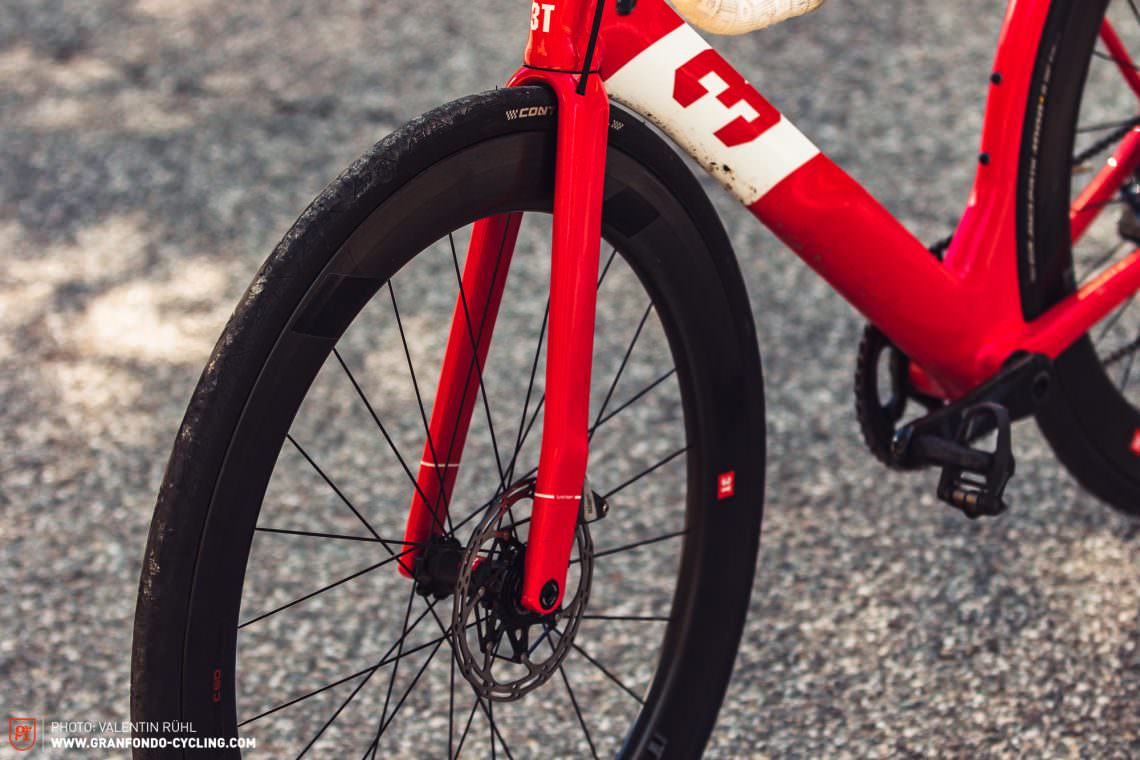
3T Strada: Geometry
| Size | S | M | L | XL |
|---|---|---|---|---|
| Seat tube | 390 mm | 420 mm | 465 mm | 485 mm |
| Top tube length | 529 mm | 550 mm | 571 mm | 592 mm |
| Head tube | 119 mm | 143 mm | 172 mm | 202 mm |
| Seat tube angle | 72.5° | 72.5° | 72.5° | 72.5° |
| Head tube angle | 71.2° | 73° | 73.5° | 73.5° |
| Chainstay | 405 mm | 405 mm | 405 mm | 405 mm |
| Fork | 355 mm | 355 mm | 355 mm | 355 mm |
| BB Drop | 71 mm | 71 mm | 71 mm | 71 mm |
| Stack | 507 mm | 536 mm | 565 mm | 594 mm |
| Reach | 369 mm | 381 mm | 393 mm | 405 mm |
3T Strada: On test
The concept strikes us as pretty innovative on paper, but we’re curious about how it’ll translate onto the roads. Our first impression: It’s damn fast and a climbs pretty well.
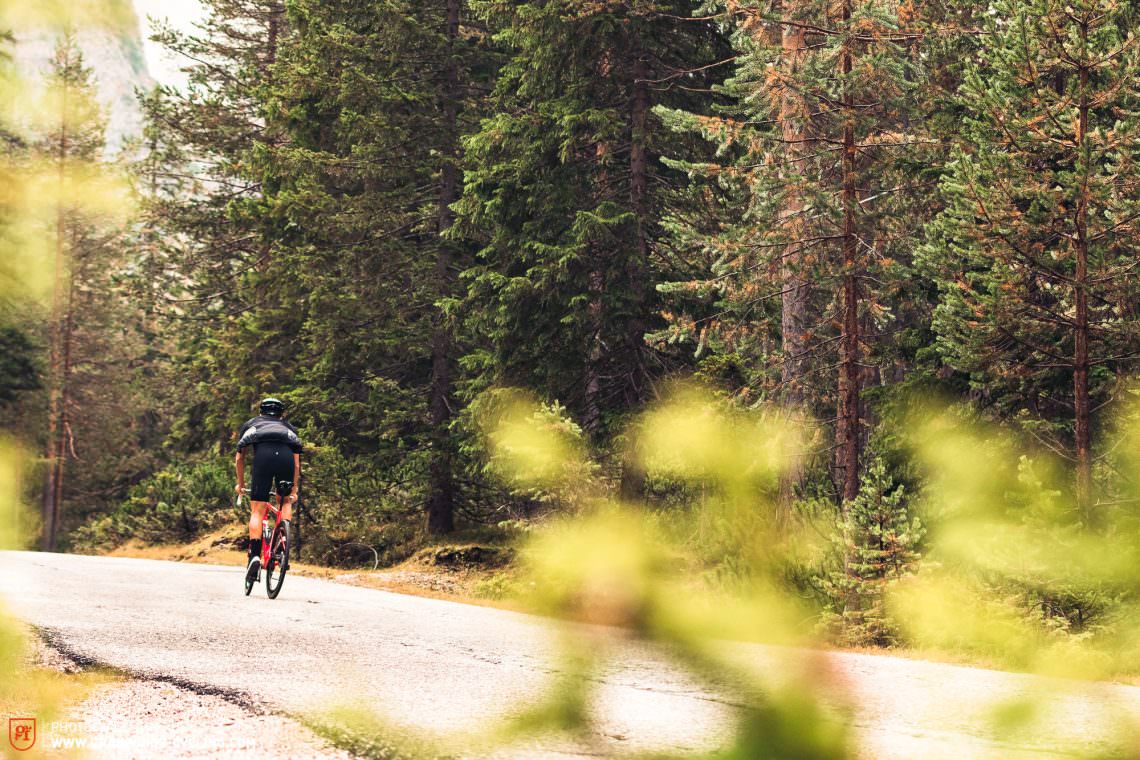
So where better to test the mettle of this groundbreaking aero bike than by taking on a couple of passes in the Dolomites? A baptism of fire, the 1×11 drivetrain on the aero bike worked surprisingly well, with a good gear range and no shortage of climbing gears; our only criticism would be that the excessive leaps between the gears. At high speeds we kept spinning out, but mounting a bigger chainring can solve that. The noisy chain line wasn’t wholly convincing, and the sound emitted when cross-chaining down on the smallest sprocket is much louder than you’d hear on a comparable 2×11 setup.
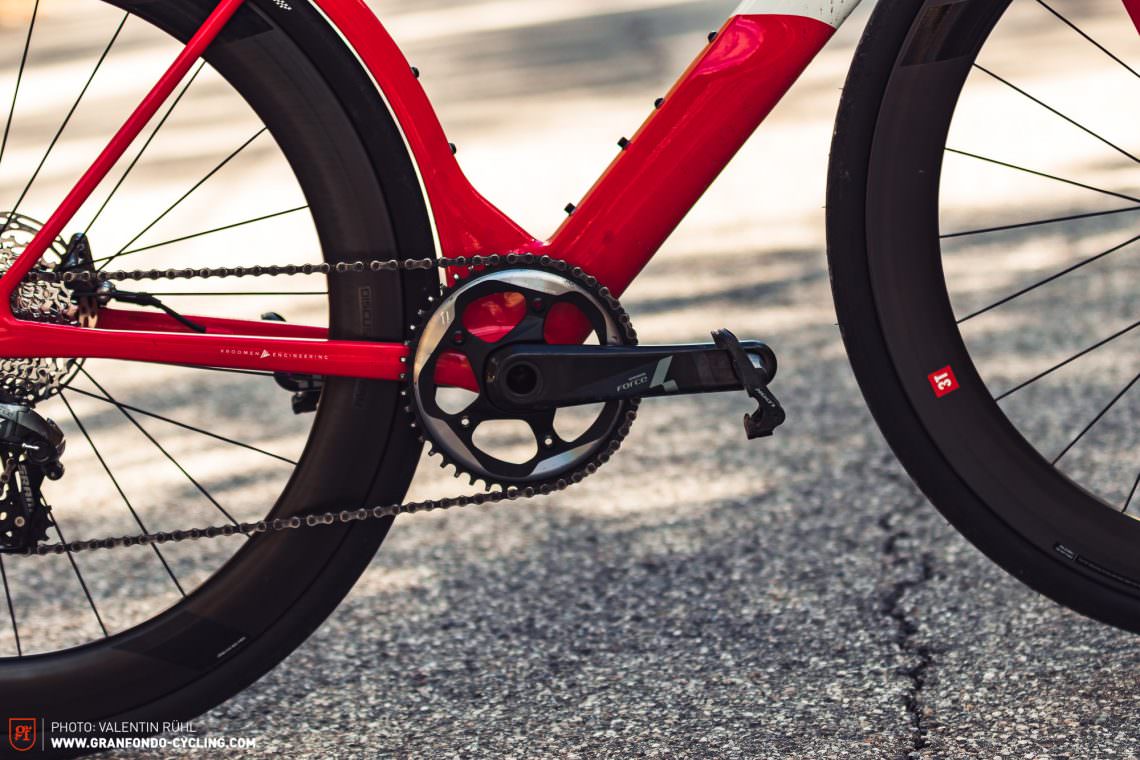
On descents the 3T’s speed is confirmed once again, hinting at an almost motor doping-esque sort of velocity. The Strada is a rocket on flat straights, but flails when it comes to cornering; there’s a lack of lateral stiffness which results in imprecision and it has a tendency to wallow in the corners – a bit of a fun-sapper on hairpins.
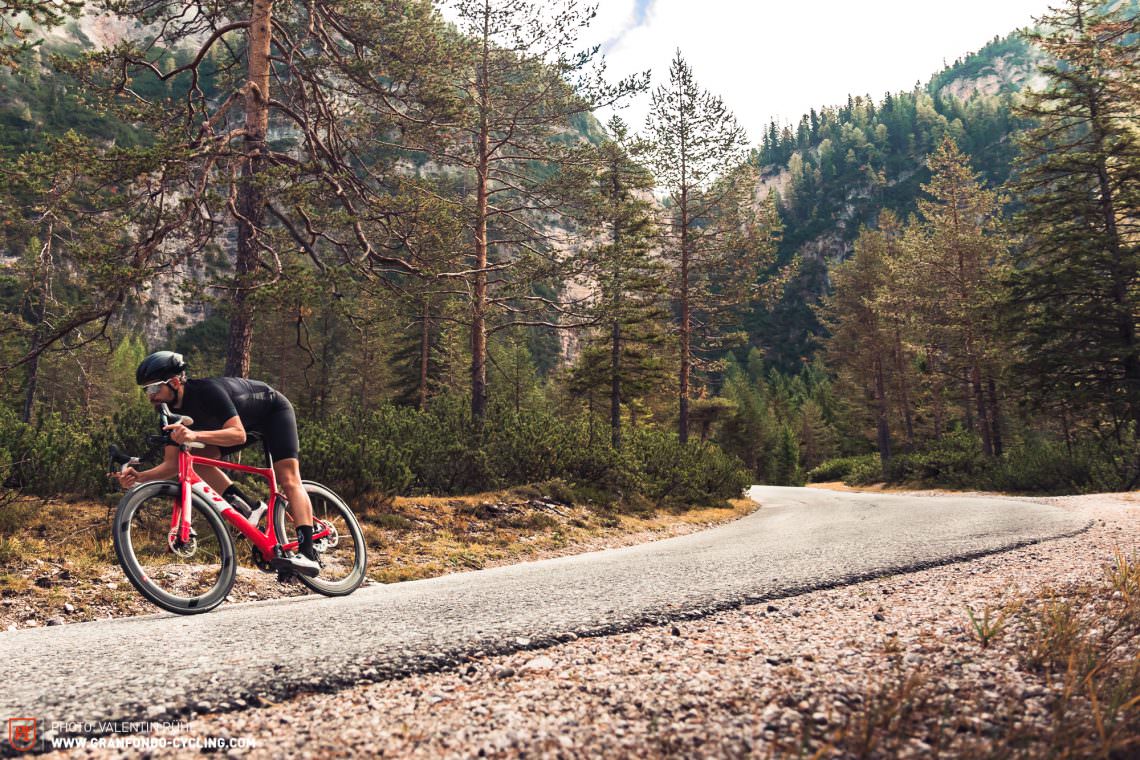
The disc brakes (160/140 mm) give a solid, well-balanced performance and the SRAM Force HRD brakes are easy to dose (although they lack the edge of their Japanese competitors). Grip is in good supply thanks to the 28 mm-wide Continental 4 Season tires, and these – along with the really soft WTB saddle – are a major asset to the bike’s comfort. Without these features you’d probably bemoan the incredible vertical stiffness of the frame and the almost vertical seat post.
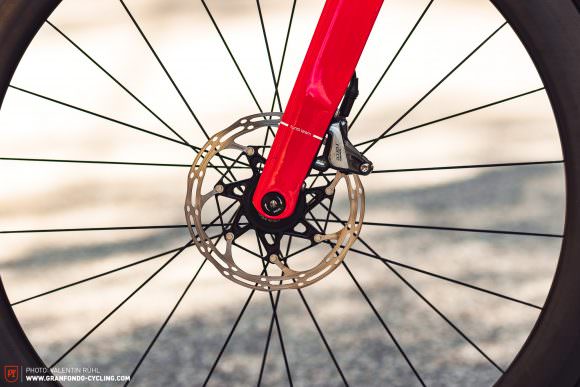
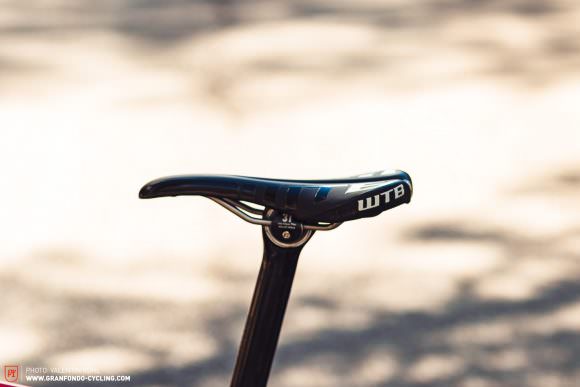
Tire clearance is almost at its limit with the 28 mm tires, but this also means the bike satisfies UCI limits and fits into 3T’s aero design. However, one drawback is that the frame and fork crown on our test bike were already showing some signs of their adventures from road debris.
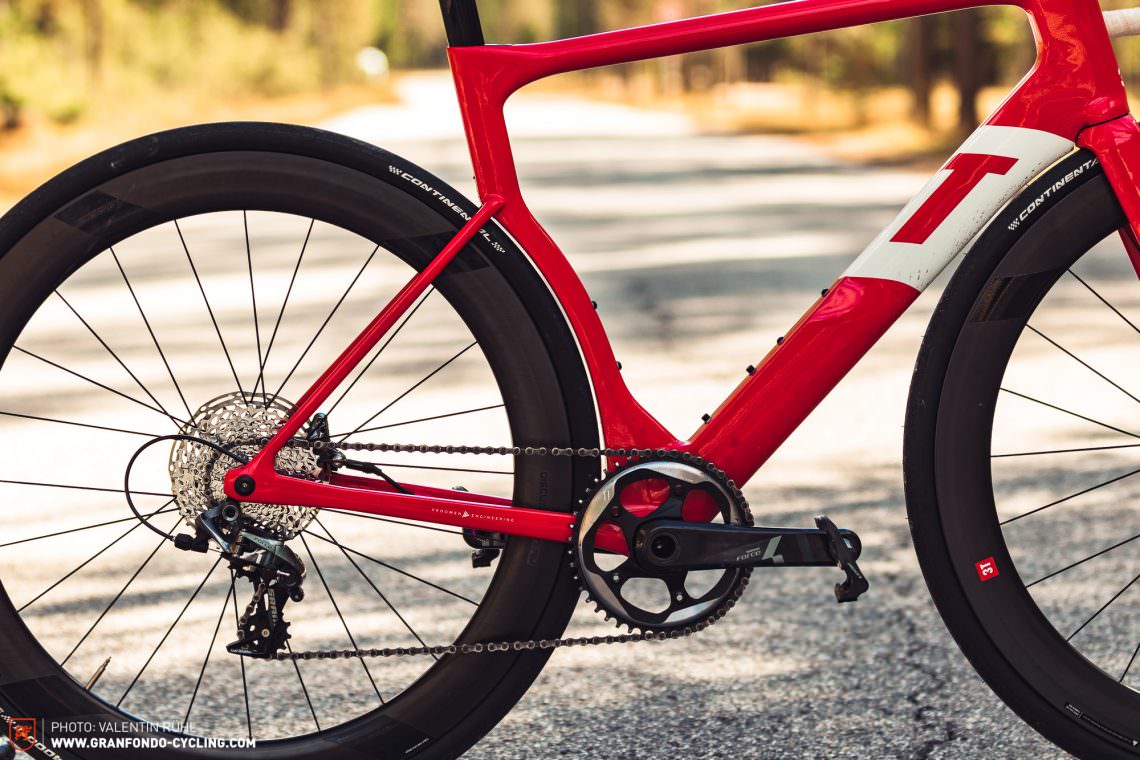
The Aerotundo dropper bars were a major disappointment on this test bike due to the excessive flex impacting on its steering. Their rounded shape also extends the reach, so that your arms are continually in the way while riding on the drops.
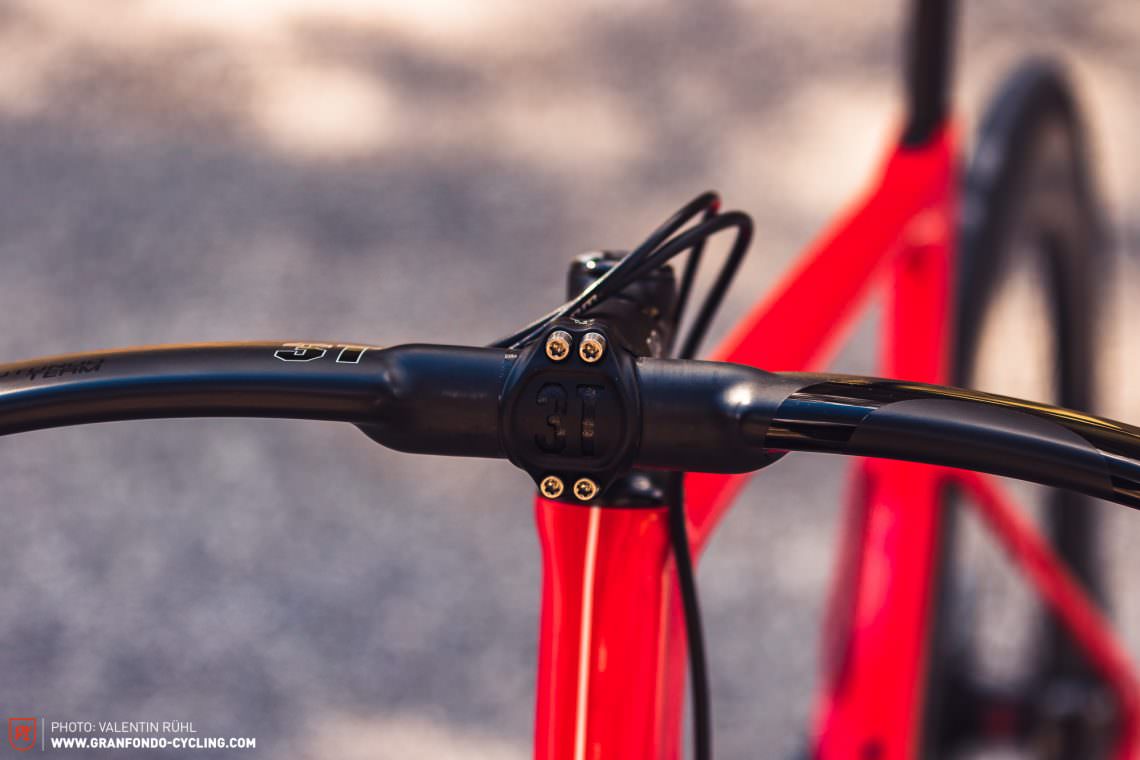
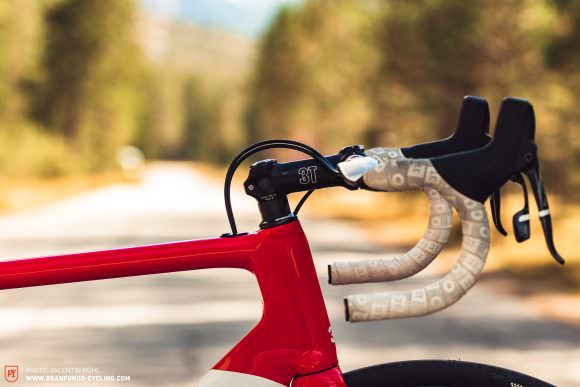
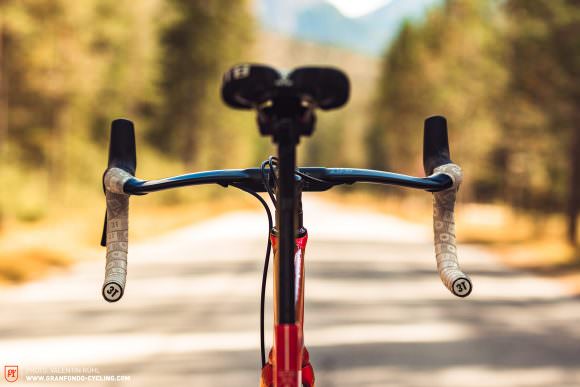
3T have evidently gone for a statement bike, much like they did with the 3T Exploro, so there’s no shyness about this aero-optimised design. From front to back it shows a consistent, clean design, which is only let down by the cables that, in 3T style, dip sharply down into the top tube.
3T Strada Weight, Model and Availability
3T have gone for a straightforward approach to models and colourways; right now, the Strada comes exclusively as a frameset including fork, seatpost and headset in the 3T team colour only and four different sizes. The disc brake frame and fork will set you back € 3,800. Thanks to the FlipTop Cover for internal cable routing, the 3T Strada can work with both mechanical and electronic shifters, although it is restricted to a single chainring at the front – there’s simply no mount for a front mech. In a size medium the 3T Strada’s frame weighs 970 g while a non-shortened 3T Fundi fork weighs 400 g. Really promising figures, these put the Strada right up on the front line of aero bikes.
Conclusion
Are 3T onto something with their concept of aero meets comfort? Its propensity for speed isn’t up for question, and those 28 mm tires and soft saddle contribute to its comfort. But when a bike’s handling doesn’t quite add up there’s always going to be some hesitation: As soon as the road isn’t pin-straight, the nominal comfort, lack of lateral stiffness in the frame and the flex in the bars put the brakes on a good time. As a concept we applaud 3T’s innovative approach, but consider that it’s a bike with too many compromises so that ultimately the benefits can’t be fully enjoyed.
For more information: 3t.com
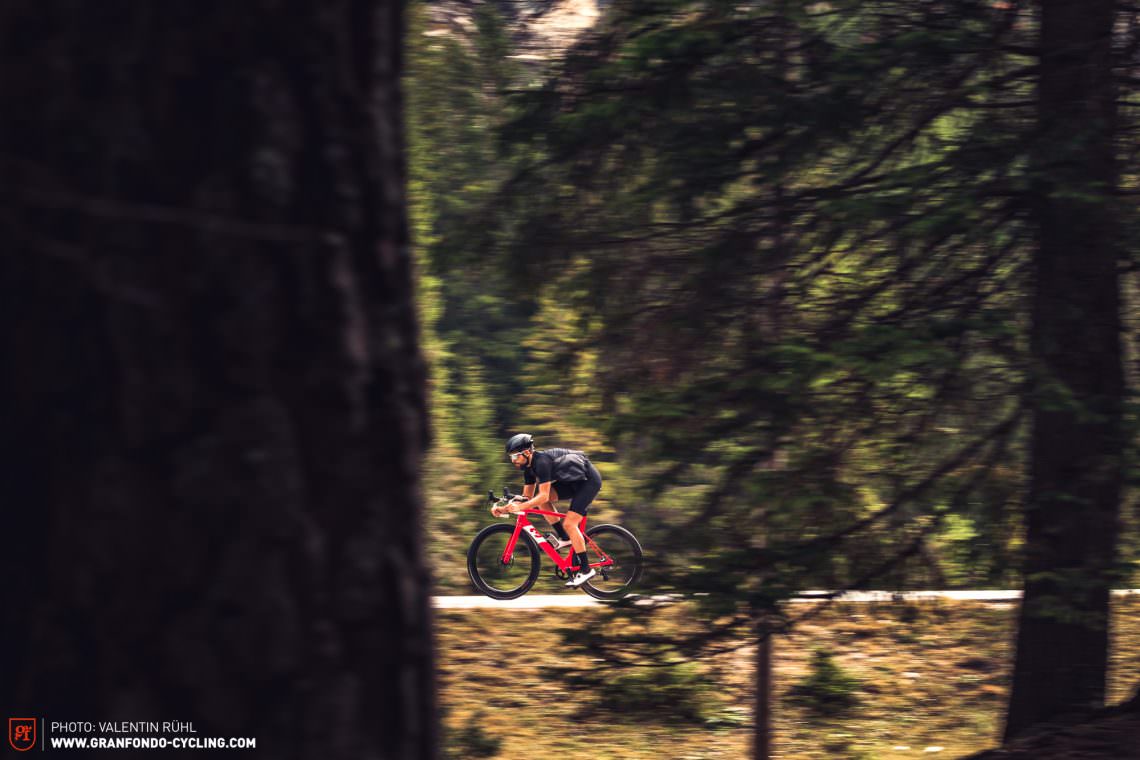
Did you enjoy this article? If so, we would be stoked if you decide to support us with a monthly contribution. By becoming a supporter of GRAN FONDO, you will help secure a sustainable future for high-quality cycling journalism. Click here to learn more.
Words: Photos: Valentin Ruhl



